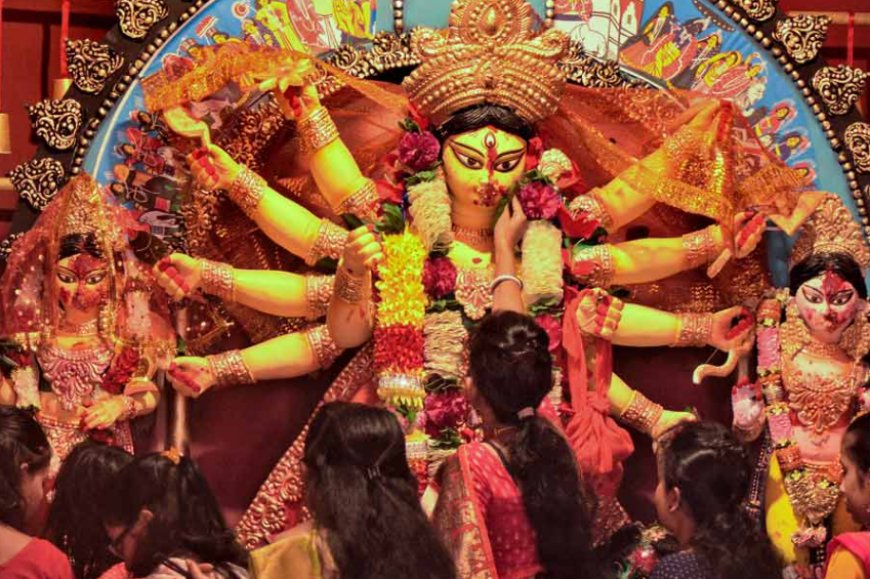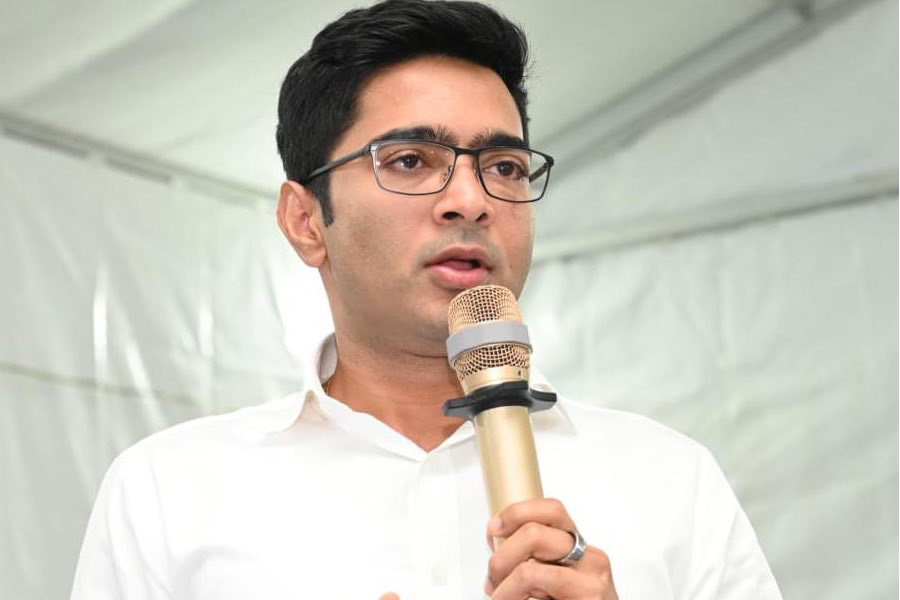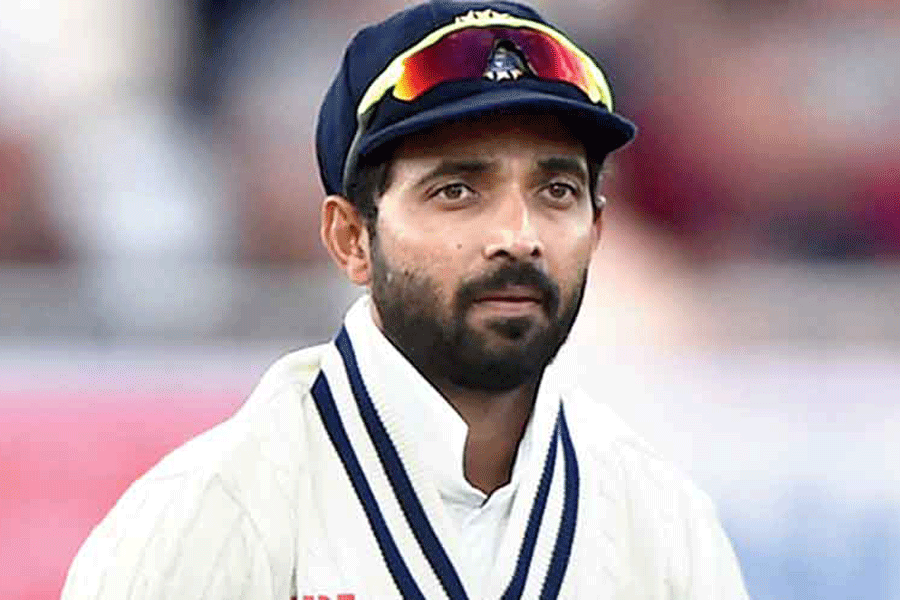South African Bengalis Revive Public Durga Puja Festivities
BASA Brings Communities Together for Four-Day Celebration

The public Durga Puja festivities in South Africa have been brought back to life by the Bengali Association of South Africa (BASA). The four-day festival culminated on Tuesday with Devi Boron and Sindoor Khela.
Durga Puja was held by BASA in the Marlboro population Centre, north of Johannesburg. Previously, it was limited to temples constructed by the local Indian population, which is descended from the first Indians who came in 1860 as indentured laborers for the sugar cane estates.
The women, young girls, and even a few young boys performed a Dhunuchi dance, which was one of the highlights and thrilled hundreds of residents.
"The Dhunuchi dance is a crucial aspect of Durga Puja because it represents positivity and prosperity through the fragrance of incense that is burned in a dhunuchi, a brass or clay incense holder, which the women gracefully waft," BASA President Gourish Chakraborty said.
The first immigrants to work in South Africa in the early 1990s, when India restored diplomatic ties with the country after almost 40 years of isolation due to apartheid, are the source of BASA.
About 30 or 40 families from all across South Africa came together to start the group. Only after I was interviewed on television by South African Broadcasting Corporation, the country's state broadcaster, did I learn this. I began getting calls from a lot of Bengali residents here, Chakraborty said.
"We started the Durga Puja in a small way 19 years ago and it has grown exponentially to the point where we constantly have to find larger venues as more Bengalis started arriving to work here."
"We have reached a point where we are bringing in the Murthi of Durga Maa from India on a yearly basis, and this has drawn many local Indian devotees to join us for the celebration," Chakraborty said.
While acknowledging that obtaining funds might be difficult, Chakraborty said that BASA received strong support from even the immigrants from Bangladesh, which was historically a part of India.
"We are really fortunate because our festivities transcend all linguistic and religious barriers. He remarked, "Even the shopkeepers, who are primarily Muslims from Bangladesh, have been contributing to our projects and have been supporting us."
Every year, a Kavi (Poetry) Night is the other significant BASA initiative, according to Chakraborty.
The two most well-known poets in the area, Kavi Nazrul Islam and Rabindranath Tagore, are also recognized on their birthdays each year. Both adults and kids perform songs, plays, and recitals about these two inspirational guys. Locals also enthusiastically support the event, he added.
According to local community leaders, the celebration of the Navratri holiday in South Africa has been improved by the country's second wave of Indian immigration in more than a century.
Both Indians descended from the first migrants who came from 1860 forward and the expatriate Indians who started coming from the 1990s onwards following the advent of democracy under Nelson Mandela celebrate Navaratri with great fervor at locations around the nation for nine nights each year.
India forbade its nationals from doing business in any capacity with South Africa starting in 1947, and the apartheid government of South Africa, which was led by a white minority, halted immigration from India and even attempted to force the Indian population leaving the country to return with permits that had to be purchased.
This was in spite of the fact that at that time they were into the third and fourth generations of South African-born people.
However, in terms of culture, the faiths, practices, and traditions that the first immigrants carried over endured in regionally specific ways. This includes Navaratri, which by the 1980s had mostly evolved into Garba dance performed by elderly women in the Hindu community, which is mostly Gujarati.
"All of this changed as soon as the first young Indians came here after India resumed relations with South Africa and Mandela was released from 27 years of political imprisonment," said Kishore Badal, the chairperson of the Hindu Coordinating Council in Lenasia, a sprawling township located about 30 kilometers south of Johannesburg.
Indians from all across the area had been forcefully relocated to Johannesburg by the apartheid authorities.
"With the arrival of these 'new' Indians,' there was a fresh push to preserve religious and cultural celebrations, encompassing music, dance, and language. This also began to resonate more with the youth of South Africa who were losing all of this," Badal said.
The Lakshminarayan Mandir and the nearby Ramakrishna Hall host one of the biggest Navaratri festivals in Lenasia, which is organized by Hitesh Kanjee. He claims that the modern music, color, and vivacity of the Indian expat community's celebrations have even drawn younger people to these events.
"So much so that we discovered a decreased attendance at our event this year." Additionally, there were huge crowds where most Indians used to dwell in one region, but now that many have migrated to sections of the city that were historically off-limits to white people, they find it more convenient to attend local Navaratri celebrations, according to Kanjee.
A sizable Indian population in the once all-white suburbs of Johannesburg South capitalized on the trend of the expat community to bring out musical ensembles from Gujarat and Mumbai and brought one such group that attracted sizable numbers during the evening celebrations.
Kanjee said that the local society has become more used to Indian cuisine thanks to the Indian expats.
"We didn't serve bhel puri and paani puri at our gatherings in the past. Nowadays, there is a large selection of street meals that are popular in India at the food stalls, and the residents have taken to eating them during public Diwali festivities and festivals like Navaratri, when many vendors selling these dishes appear, according to Kanjee.
Large screens were set up at some of the Navaratri venues on Saturday night to ensure that fans did not stay home to watch the crucial World Cup Rugy semifinal between South Africa and England. After the South African squad advanced to the final by a single point, garba sticks were thrown into the air, creating an exciting atmosphere.
Except for the headline, this story has not been edited by Press Time staff and has been published from a syndicated feed























































